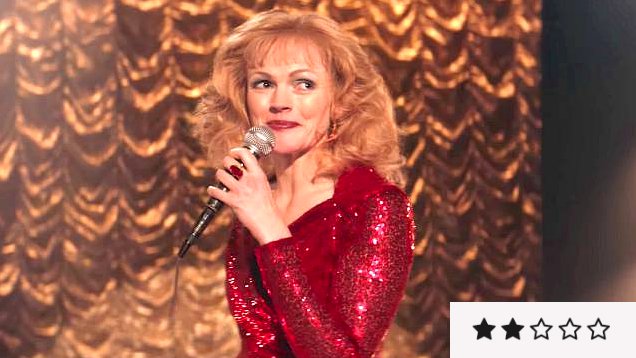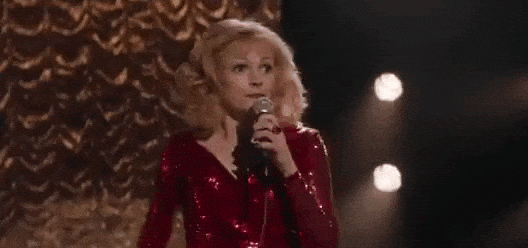Funny Cow review: an unflinching account of a woman desperate to survive

Add Funny Cow to the ranks of Yorkshire’s standout wares – alongside everything from tea to steel to Ken Loach’s Kes, plus bands such as Pulp and the Arctic Monkeys. The list goes on. However boiling kettles, grim childhoods and mournful tunes abound in this 1970s and 1980s-set portrait of an unnamed woman (Maxine Peake) trying to etch out a life that isn’t miserable, namely by inching her way onto Britain’s stand-up comedy circuit.
Cuppas flow freely, starting with requests bellowed at ‘funny calf’ (Macy Shackleton) by her violent, domineering dad (Stephen Graham). The girl’s steeliness in standing up to his beatings shines as bright as chrome; “are you angry, dad? You seem angry,” she deadpans when he raises his shaking fist. It’s a cheerless world that she inhabits – almost indistinguishable from countless other kitchen-sink dramas set in England’s north, including Loach’s – but a bird doesn’t help this mistreated soul to soar. Unrelenting in its certainty that life is filled with hardship and little else, Funny Cow doesn’t have a sliver of hope about it.
Instead, the protagonist endures the kind of whirlwind bar to backseat to flat-above-a-shop existence that Jarvis Cocker has crooned about, falling into the arms of the initially charming, ultimately just-as-abusive Bob (Tony Pitts, who also wrote Funny Cow’s screenplay). Once unhappily settled, her days are as dour as a scene conjured by an early Alex Turner lyric; her expression the epitome of someone who’s “got the face on”.
Later, she meets middle-class bookshop owner Angus (Paddy Considine) who represents a world far removed from the blue-collar existence she has always known. Walking through his sprawling home, all she can do is swear as she enters room upon room upon room. And yet, romancing her way upwards isn’t a solution a woman like Funny Cow’s lead character could ever stomach, although it’s a better solution than sinking her disappointments at the bottom of a bottle like her alcoholic mother (Lindsey Coulson). Rather, it’s chancing upon jobbing comic Lenny (Alun Armstrong) that gives her something to hold onto. “I don’t have a backbone, I have a funny bone,” she tells him. “It’s not a job for a woman. Women aren’t funny,” he counters.

Brought to the screen with appropriately grey, brown and beige hues by Pierrepoint filmmaker Adrian Shergold, Pitt’s script frames Funny Cow’s narrative as a retort to that contention – or, more accurately, as a rallying cry that both spinning jokes and laughing at them is sometimes the only solace one has. Structured around its titular figure’s on-stage banter, the movie uses the ups and downs of her life as evidence in support. She drips self-deprecating barbs and unfurls bleak memories while sitting in the spotlight, addressing the viewing audience like a club audience, and the film lets her desolate stories come to life in chapters entitled ‘the first bit’, ‘the next bit’, ‘another bit’ and ‘nearly the last bit’.
Usually taking centre stage in cinematographer Tony Slater Ling’s (TV’s Electric Dreams) frames – and usually dressed in symbolism-laden red to demonstrate her fierce, angry inner spark – Peake is the heart, soul, glowering stare and all-round force that’s so pivotal to Funny Cow. She’s also the reason the film echoes beyond its Rotherham setting, shouting its pain far and wide.
More than mere misery porn, as downbeat studies of life on the margins are often characterised, this is an unflinching account of a woman desperate to survive
More than mere misery porn, as downbeat studies of life on the margins are often characterised, this is an unflinching account of a woman desperate to survive, yet possessing no misapprehensions about how difficult her task is. While sad clown tales might be as old as clowns themselves, rarely are they told with such a fire burning inside its courageous, clear-eyed, bitterly determined protagonist.
Indeed, Funny Cow wants viewers to bathe in its namesake’s discomfort, though never at her expense. With their freewheeling handling, bobbing in and out of gloomy incidents and between time periods, Pitts and Shergold want the audience to understand just what their ‘funny cow’ – or ‘dirty cow’, as she’s called by cruel, teasing children; or ‘fucking little cow’, as her father furiously shouts – is fighting not only for, but against.
That includes the deeply inappropriate jokes she’s equally surrounded by and forced to tell, in what’s blatantly an insular, unforgiving, sexist and racist climate. There’s nothing amusing about someone taking a lowest common denominator-approach simply to get by, but Funny Cow isn’t trying to live up to its title. It’s a comic tragedy as layered as Richard Hawley’s fittingly maudlin soundtrack, and one always cognisant that life’s modest laughs and fleeting highlights are all-too-often steeped in despair and darkness.

















